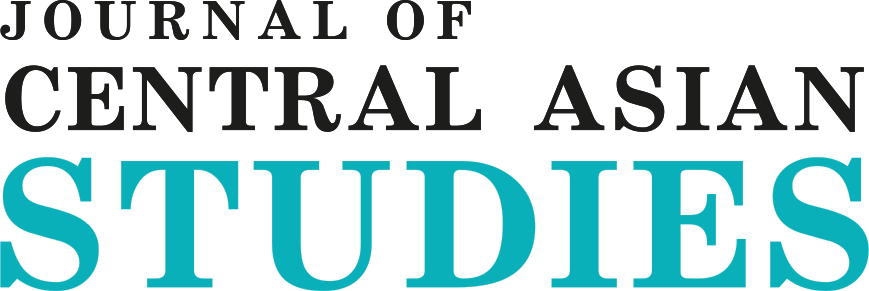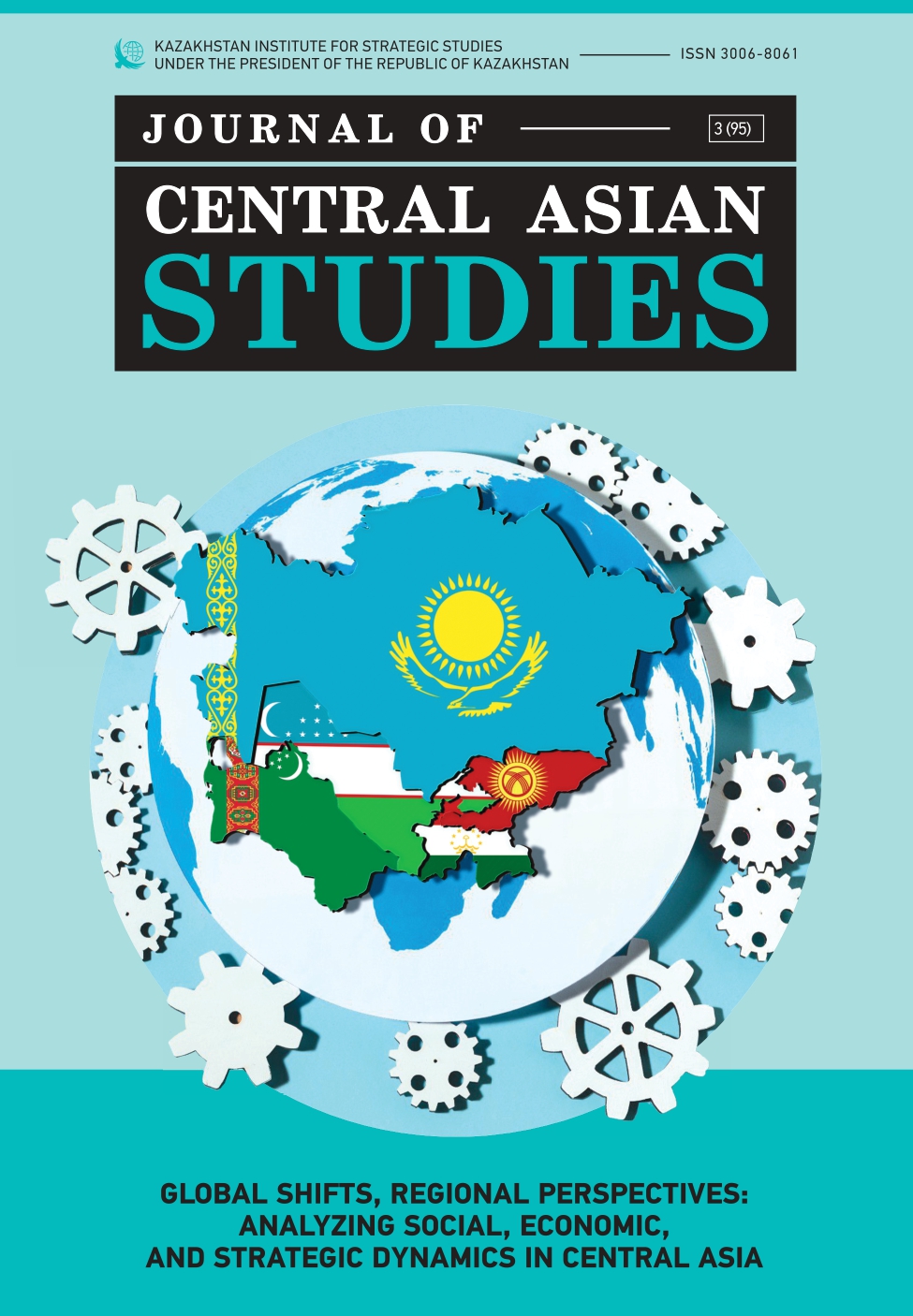Do Global Excellence Initiatives Lead to an Increase in Research Productivity: The Case of Kazakhstan’s World-Class University
DOI:
https://doi.org/10.52536/3006-807X.2024-3.02Keywords:
Academic excellence initiatives, world-class university, research productivity, bibliometric, Nazarbayev UniversityAbstract
Global excellence initiatives have been widely implemented across various regions to elevate the quality and standing of higher education institutions. The establishment of world-class universities have been one of the most frequent approaches within the global excellence initiatives. A notable example of the successful establishment of a novel world-class university is Nazarbayev University in Kazakhstan, which is expected to transform Kazakhstani society by training high-qualified cadre, stimulating research and innovative activity in the country, and serving the larger society in terms of intellectual leadership and global citizenship initiatives. Despite the great promise, the university has been greatly scrutinized for the financial burden associated with its creation and maintenance. The public attention, however, has not resulted in a sufficient number of studies evaluating the various impacts of the university on Kazakhstani society and the Central Asian region at large. This study attempts to fill the gap by analyzing bibliometric data from the Web of Science to estimate the effect of the creation of Nazarbayev University on research productivity measures in Kazakhstan. More specifically, interrupted time series is applied to the data panel from 2000 to 2010 to determine whether trends in research productivity measured in terms of the number of publications, number of citations, and the size of the scholarly community (as a proxy for research capacity strengthening effect) have been affected by the establishment of the world-class university in the country. The study fills the existing gap in prior research on global academic excellence initiatives and world-class universities by suggesting quantitative insights on the research productivity effects of the initiatives.
References
Altbach, P. G., & Salmi, J. (Eds.). (2011). The Road to Academic Excellence: The Making of World-Class Research Universities. World Bank Publications.
Asubiaro, T., Onaolapo, S. & Mills, D. (2024).Regional disparities in Web of Science and Scopus journal coverage. Scientometrics, 129, 1469–1491. https://doi.org/10.1007/s11192-024-04948-x
Audulv, Å., Hall, E.O.C., Kneck, Å. et al. (2022). Qualitative longitudinal research in health research: a method study. BMC Med Res Methodol, 255 (2022). https://doi.org/10.1186/s12874-022-01732-4
Bernal, J. L., Cummins, S., & Gasparrini, A. (2017). Interrupted time series regression for the evaluation of public health interventions: a tutorial. International Journal of Epidemiology, 46(1), 348-355. https://doi.org/10.1093/ije/dyw098
Cao, Y., & Yang, R. (2023). China’s Academic Excellence Initiatives. International Higher Education, (115), 12–14. Retrieved from https://ejournals.bc.edu/index.php/ihe/article/view/16777
Caruana EJ, Roman M, Hernández-Sánchez J, Solli P. (2015). Longitudinal studies. J Thorac Dis., 7(11): E537-40. doi: 10.3978/j.issn.2072-1439.2015.10.63. PMID: 26716051; PMCID: PMC4669300.
Chou, C. P., & Chan, C. F. (2016). Trends in publication in the race for world-class university: The case of Taiwan. Higher Education Policy, 29, 431-449.
De La Poza, E., et al. (2021). Methodological approach of the Times Higher Education Impact Rankings. Emerald Insight. Retrieved from https://www.emerald.com
Feng, Z., Guo, X., & Jia, X. (2024). Global Comparison of Excellence Initiatives. In Education in China and the World: Achievements and Contemporary Issues (pp. 551-611). Singapore: Springer Nature Singapore.
Hazelkorn, E. (2013). Rankings and the reshaping of higher education: The battle for world-class excellence. Frontiers in Education. Retrieved from https://www.frontiersin.org
Katsu, S., & Saniyazova, A. (2018). A world-class experiment in Kazakhstan: Nazarbayev University. In Accelerated universities (pp. 68-85). Brill.
Kuzhabekova, A., Soltanbekova, A., & Almukhambetova, A. (2018). Educational flagships as brokers in international policy transfer: Learning from the experience of Kazakhstan. European Education, 50(4), 353-370.
Kuzhabekova, A., & Lee, J. (2018). International faculty contribution to local research capacity building: A view from publication data. Higher Education Policy, 31, 423-446.
Marginson, S. (2017). The world-class multiversity: Global commonalities and national characteristics. Frontiers of Education in China, 12, 233-260.
Mongeon, P., and Paul-Hus, A. (2016). The journal coverage of Web of Science and Scopus: a comparative analysis. Scientometrics 106, 213–228. doi: 10.1007/s11192-015-1765-5
Nazarbayev University (2023). NU enters THE World University Rankings: Scores top 30% of international research universities, September 28. Retrieved from https://ie.nu.edu.kz/news/
Rhee, B., & Yin, M. (2023). Academic Excellence Initiatives in the Republic of Korea: Brain Korea 21. In M. Yudkevich, Ph. Altbach, and J.Salmi (Eds). Academic Star Wars: Excellence Initiatives in Global Perspective. The MIT Press. Chapter 5. Retrived from https://direct.mit.edu/books/oa-edited-volume/5700/Academic-Star-WarsExcellence-Initiatives-in-Global
Salmi, J. (2011). The Road to Academic Excellence: The Making of World-Class Research Universities. Washington, DC: The World Bank.
Salmi, J. (2009). The Challenge of Establishing World-Class Universities. Washington, DC: The World Bank.
Schmoch, U., Fardoun, H. M., & Mashat, A. S. (2016). Establishing a World-Class University in Saudi Arabia: intended and unintended effects. Scientometrics, 109, 1191-1207.
Singh, V. K., Singh, P., Karmakar, M., Leta, J., & Mayr, P. (2021). The journal coverage of Web of Science, Scopus and Dimensions: A comparative analysis. Scientometrics, 126, 5113- 5142.
Song, J. (2018). Creating world-class Universities in China: Strategies and impacts at a renowned research university. Higher Education, 75, 729-742.
Tang, C. W. (2019). To be a first-class department in a first-class university: Perceived effects of a world-class initiative in two departments in a Taiwanese university. Journal of Higher Education Policy and Management, 41(3), 275-291.
The Vlast (2024). The myths about Nazarbayev University and budget spending. March 19, 2024. Retrived from https://vlast.kz/english/59380-the-myths-about-nazarbayev-university-and-budget-spending.html
Yang, X., & You, Y. (2018). How the world-class university project affects scientific productivity? Evidence from a survey of faculty members in China. Higher Education Policy, 31, 583-605.
Yonezava, A. (2023). Academic Excellence Initiatives in Japan: Can a series of government interventions make a difference? In M. Yudkevich, Ph. Altbach, and J.Salmi (Eds). Academic Star Wars: Excellence Initiatives in Global Perspective. The MIT Press. Chapter 3. Retrived from https://direct.mit.edu/books/oa-edited- volume/5700/Academic-Star-WarsExcellence-Initiatives-in-Global
Yudkevich, M., Altbach, Ph., Salmi, J. (2016). Academic Star Wars: Excellence Initiatives in Global Perspective. The MIT Press. Retrived from https://direct.mit.edu/books/oa-edited- volume/5700/Academic-Star-WarsExcellence-Initiatives-in-Global
Wagner, A. K., Soumerai, S. B., Zhang, F., & Ross-Degnan, D. (2002). Segmented regression analysis of interrupted time series studies in medication use research. Journal of Clinical Pharmacy and Therapeutics, 27(4), 299-309. https://doi.org/10.1046/j.1365-2710.2002.00430.x
Wang, Q., and Waltman, L. (2016). Large-scale analysis of the accuracy of the journal classification systems of Web of Science and Scopus. J. Informetr. 10, 347–364. doi: 10.1016/j.joi.2016.02.003
Downloads
Published
Issue
Section
License
Copyright (c) 2024 Kuzhabekova A., Karibzhanov I.

This work is licensed under a Creative Commons Attribution 4.0 International License.











 Open content is licensed under the CC-BY
Open content is licensed under the CC-BY 